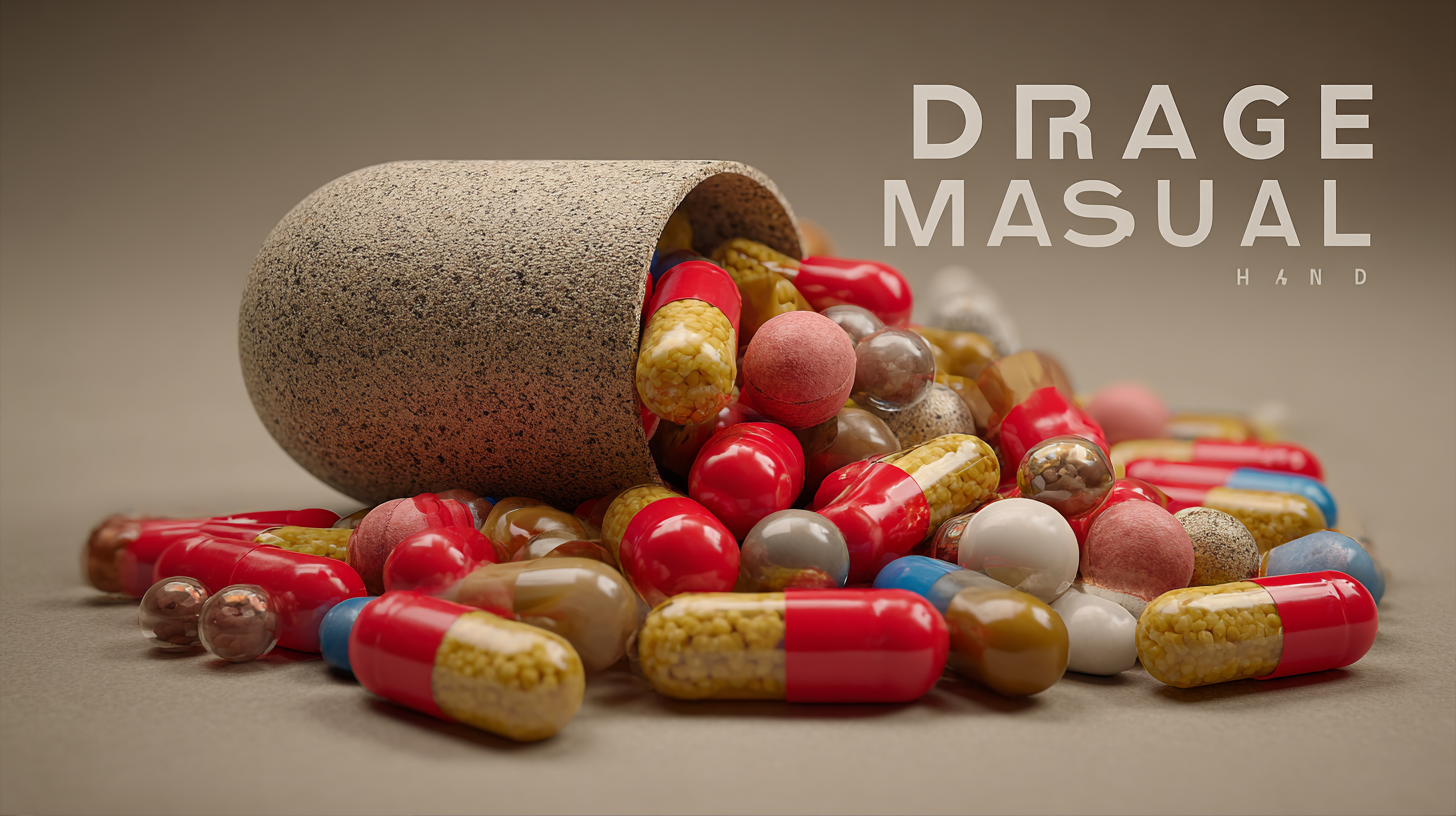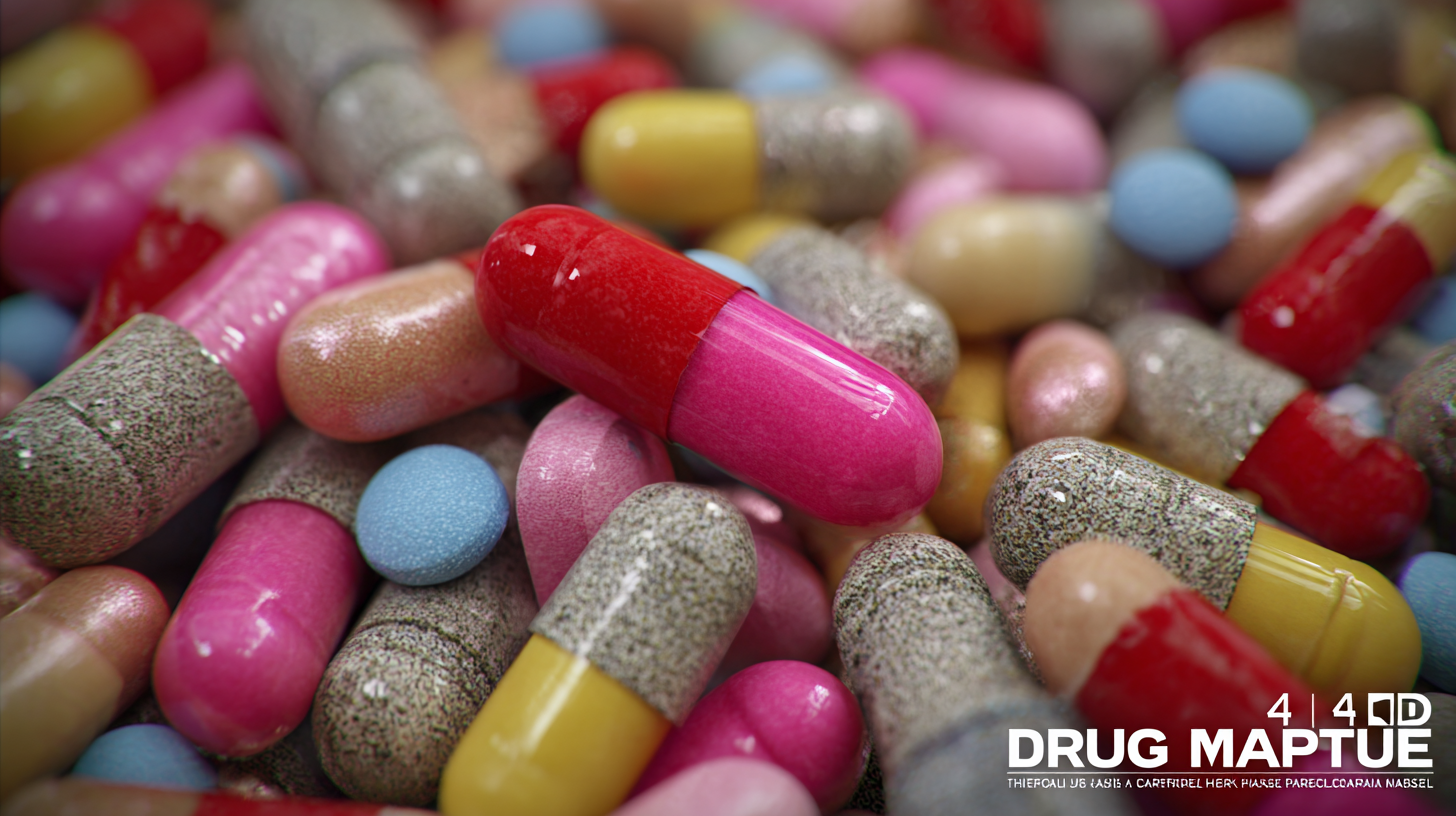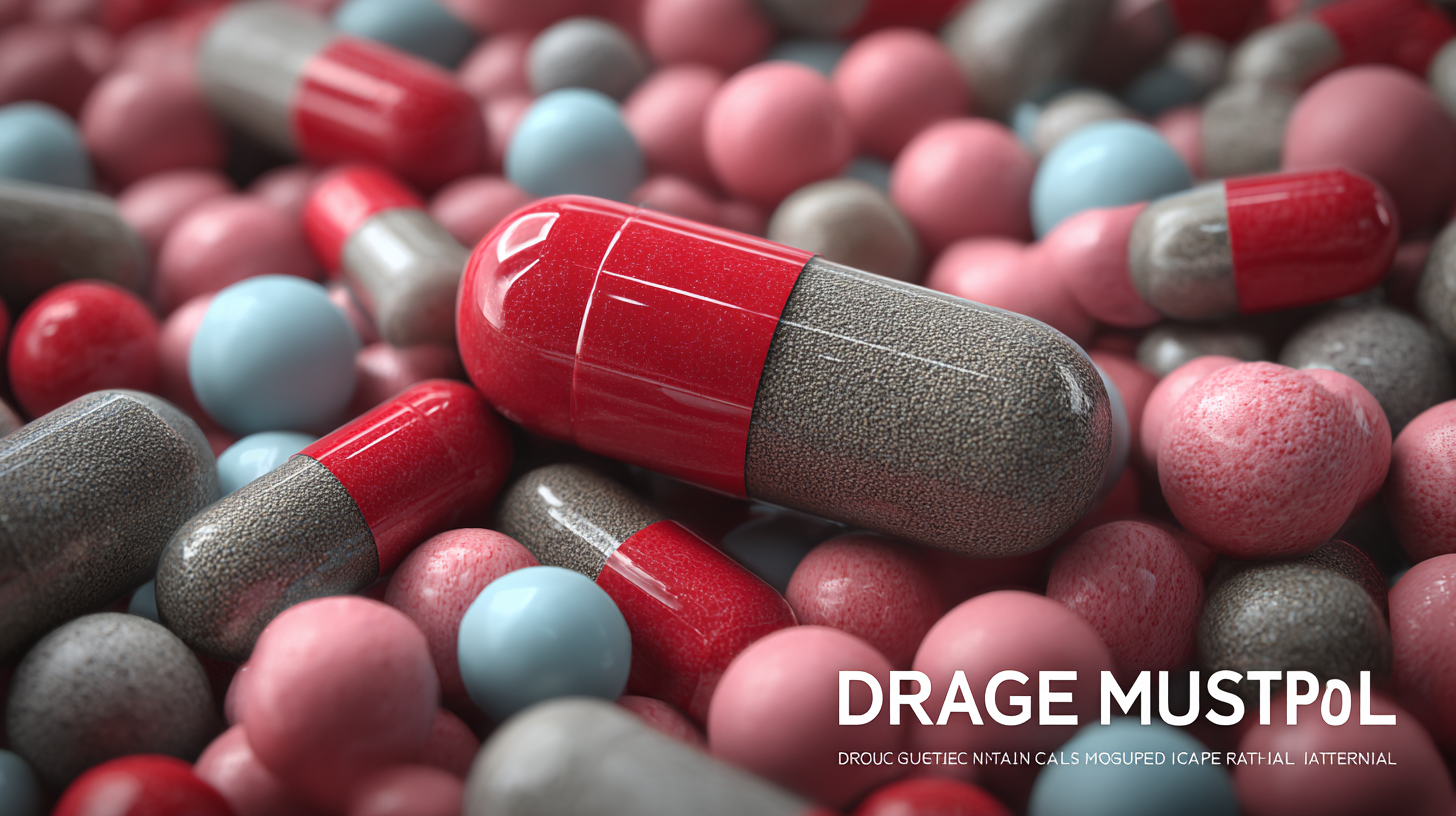
How to Choose the Best Drug Capsule Material for Your Pharmaceutical Needs
In the ever-evolving pharmaceutical industry, selecting the right Drug Capsule Material is crucial for ensuring drug efficacy, patient compliance, and overall therapeutic success. According to a report by Grand View Research, the global capsule market size is projected to reach USD 36.6 billion by 2025, underscoring the growing significance of this sector. The choice of capsule materials, which include gelatin, HPMC (hydroxypropyl methylcellulose), and other alternatives, directly impacts the dissolution rates, bioavailability, and stability of pharmaceutical formulations. Furthermore, a study published in the Journal of Pharmaceutical Sciences highlights that approximately 70% of all oral solid dosage forms are presented as capsules, emphasizing their popularity among manufacturers and patients alike. As the demand for personalized medicine and innovative delivery systems increases, understanding the characteristics and applications of various Drug Capsule Materials becomes essential for pharma professionals aiming to meet their specific needs effectively.

Identifying Key Characteristics of Drug Capsule Materials: A Comprehensive Guide
When selecting the best drug capsule material for pharmaceutical applications, it is essential to understand the key characteristics that influence efficacy and patient compliance. The primary materials used in capsules are gelatin and vegetarian alternatives, each presenting distinct benefits. Gelatin capsules, derived from animal sources, offer excellent solubility and bioavailability, making them suitable for a wide range of formulations. On the other hand, plant-based materials such as HPMC (Hydroxypropyl Methylcellulose) cater to vegan and vegetarian consumers, providing a clean label appeal.
**Tip:** Always consider the release profile required for your formulation. For immediate release, gelatin may be preferred due to its faster dissolution rate, whereas HPMC is often recommended for extended-release applications due to its moisture barrier properties.
Another crucial factor is the compatibility of the capsule material with active pharmaceutical ingredients (APIs). Different capsules can interact with certain APIs, affecting stability and potency. Conducting compatibility tests can help prevent adverse reactions before final product development.
**Tip:** Conduct thorough stability testing under various environmental conditions to identify any potential degradation over time, ensuring that the chosen capsule material maintains the integrity of your formulation throughout its shelf life.

Evaluating the Impact of Material Choice on Drug Stability and Bioavailability
The choice of drug capsule material plays a crucial role in determining the stability and bioavailability of pharmaceutical formulations. Different materials, such as gelatin, HPMC (hydroxypropyl methylcellulose), and pullulan, each exhibit unique properties that can significantly influence the encapsulation process and release profiles of active pharmaceutical ingredients (APIs). For instance, gelatin capsules are widely used due to their excellent solubility and digestibility, but their stability can be compromised in certain environmental conditions, leading to potential degradation of the drug.
On the other hand, HPMC capsules offer a vegetarian alternative with enhanced moisture resistance, making them suitable for sensitive APIs that require a more stable environment. This material tends to maintain drug integrity better in varying humidity levels, thereby improving overall bioavailability. However, the chosen material must also align with regulatory standards and the intended release mechanism of the formulation. By carefully evaluating these factors, pharmaceutical developers can ensure optimized drug delivery and efficacy tailored to specific therapeutic needs.
Comparative Analysis: Gelatin vs. HPMC Capsules in Pharmaceutical Applications
In recent years, the pharmaceutical industry has increasingly turned to capsule forms as a preferred method of drug delivery. The global soft gelatin capsules (softgels) market is projected to dominate, especially in North America, due to their enhanced bioavailability and patient compliance. Notably, the global market for empty capsules is estimated to reach $4.4 billion by 2030, growing at a CAGR of 5.7% from $3.0 billion in 2023. This trend highlights the importance of selecting the right capsule material based on specific pharmaceutical needs.

When comparing gelatin capsules and HPMC (Hydroxypropyl Methylcellulose) capsules, it is crucial to understand their unique properties and potential applications. Gelatin capsules tend to face stability challenges in extreme temperatures and humidity, which can impact their integrity. Conversely, HPMC capsules offer a vegetarian alternative without the inherent instability issues associated with gelatin. As a result, manufacturers are now considering innovative formulations that combine both materials, such as using hypromellose phthalate with gelatin to harness the benefits of both while mitigating their disadvantages. Such advancements are paving the way for more versatile and reliable pharmaceutical products in the market.
Checklist for Assessing Supplier Credentials: Ensuring Quality and Compliance Standards
When selecting a supplier for drug capsule materials, ensuring their credentials is vital to maintain quality and compliance. Start by verifying the supplier’s certifications, such as Good Manufacturing Practices (GMP) and ISO standards. This guarantees that the materials are produced under stringent quality controls. It's important to request documentation that demonstrates their adherence to these standards.
Tip 1: Engage in a thorough background check of the supplier. Look for reviews, testimonials, and any history of regulatory issues. This not only reveals their reputation in the industry but also highlights their commitment to quality.
Additionally, assess the supplier's track record in compliance with local and international regulations. Understanding their processes related to safety, sourcing, and material integrity is crucial.
Tip 2: Schedule an audit of the supplier’s facilities if possible. This firsthand observation can provide insights into their manufacturing process, equipment, and workforce, ensuring that they align with your standards.
By implementing these assessment criteria, you can confidently select a supplier that meets your pharmaceutical needs while upholding quality and compliance standards.
Supplier Credentials Assessment for Drug Capsule Materials
Understanding Regulatory Compliance for Capsule Material in Global Markets
When selecting the appropriate drug capsule material for pharmaceutical applications, understanding regulatory compliance is crucial, especially in global markets. Different regions have specific guidelines governing the materials used in drug capsules, affecting their safety, efficacy, and quality. For instance, the U.S. Food and Drug Administration (FDA) has stringent regulations that manufacturers must adhere to, ensuring that capsule materials are safe for human consumption. In contrast, the European Medicines Agency (EMA) emphasizes the importance of risk management, requiring comprehensive documentation to demonstrate that the chosen materials meet their strict standards.
Furthermore, international harmonization efforts, such as those initiated by the International Council for Harmonisation (ICH), aim to streamline regulatory processes across borders. By adhering to these globally recognized standards, pharmaceutical companies can ensure that their products meet the necessary compliance requirements, facilitating smoother entry into various markets. Understanding these regulations not only helps in mitigating potential legal risks but also reinforces the overall integrity and trustworthiness of pharmaceutical products. Therefore, thorough research and consultation with regulatory experts are essential steps in selecting the best capsule materials for diverse markets.
How to Choose the Best Drug Capsule Material for Your Pharmaceutical Needs
| Capsule Material | Source | Regulatory Compliance | Advantages | Disadvantages |
|---|---|---|---|---|
| Gelatin | Animal | FDA, EMA | Widely used, excellent bioavailability | Not suitable for vegetarians/vegans |
| HPMC (Hydroxypropyl Methylcellulose) | Plant | FDA, EMA | Suitable for vegetarians/vegans | Higher production costs |
| Pullulan | Fungi | FDA, EMA | Good oxygen barrier, suitable for sensitive drugs | Limited availability |
| Starch | Plant | FDA, EMA | Natural, biodegradable | May have variable performance |
